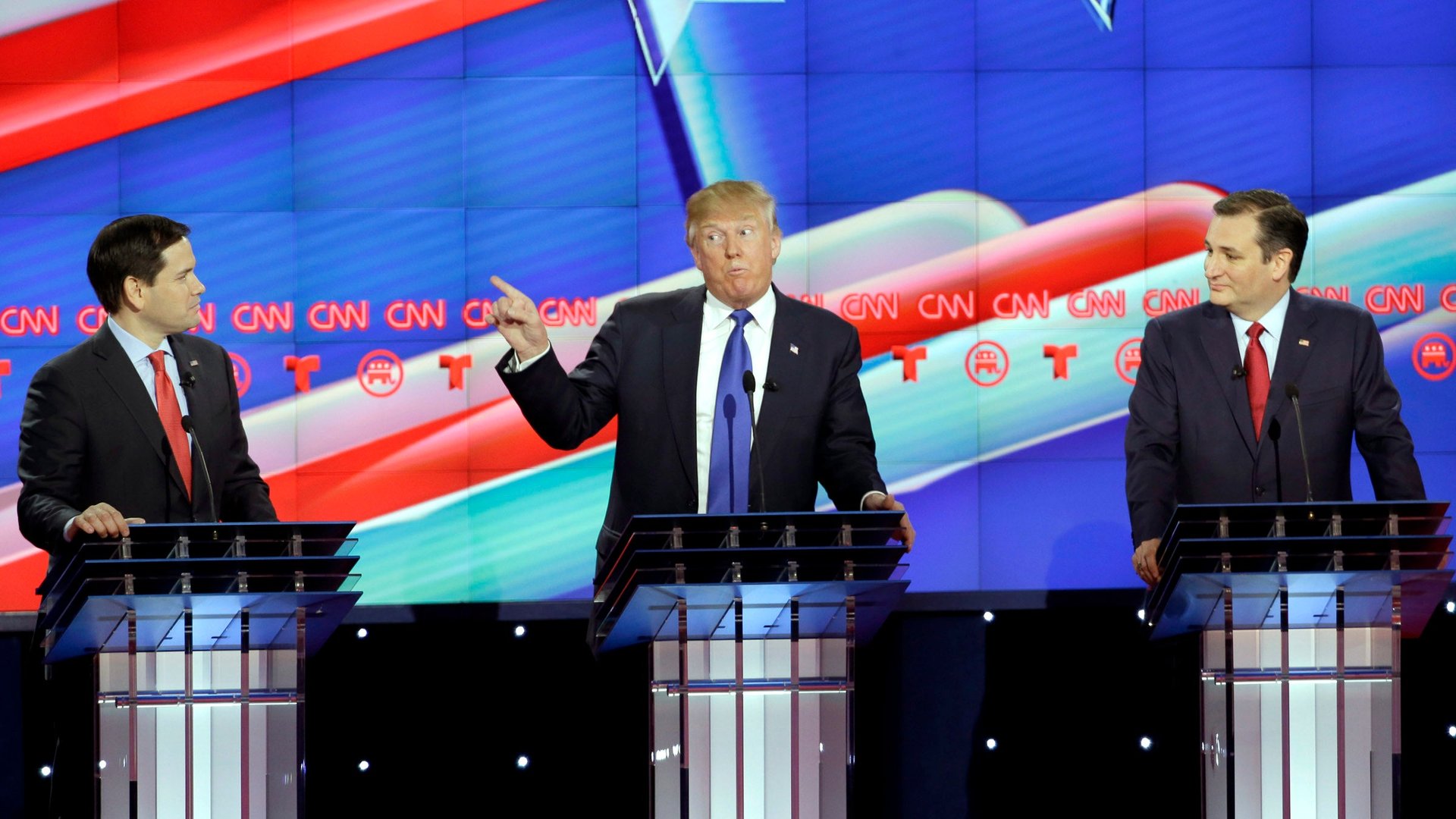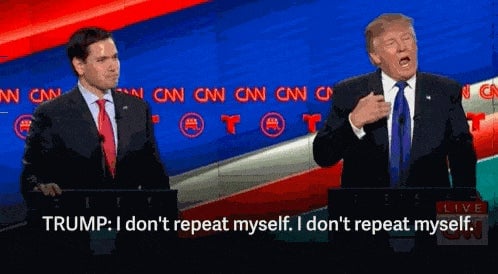For a moment, Donald Trump was the most compassionate candidate in tonight’s debate
Only on a Republican presidential debate stage could Donald Trump’s pledge—”I will not let people die on the streets for lack of health care”—be controversial.


Only on a Republican presidential debate stage could Donald Trump’s pledge—”I will not let people die on the streets for lack of health care”—be controversial.
With Trump firmly in the lead in the race for the Republican presidential nomination, his main rivals—senators Marco Rubio and Ted Cruz—took turns trying to push the voluble billionaire out of his comfort zone.
They succeeded in occasionally flustering him, but it’s not clear if their attacks will check his momentum when Republican primary voters go to the polls in 12 states on March 1, a.k.a. “Super Tuesday.”
Rubio gleefully pointed out a bit of Republican heresy: Trump briefly endorsed the individual mandate that requires all Americans to buy health insurance, which came into effect as part of president Barack Obama’s health care reform law.
Trump rejected any suggestion of a mandate and insisted he would overturn the Affordable Care Act—though he did say he would prevent insurance companies from taking away coverage because of pre-existing conditions.
When moderator Dana Bash pushed him on the issue—insurance companies say they need universal coverage to make up for the cost of those protections—Trump scoffed, saying the key is to open up inter-state competition between insurance companies by getting rid of “the lines around the states.”
“So, that’s the only part of the plan? Just the lines?” Rubio pounced.
“You’ll have many different plans,” Trump said, “You’ll have competition, you’ll have so many different plans.”
“Now he’s repeating himself!” Rubio cried, relishing a bit of self-referential humor.

Shortly thereafter, Cruz jumped in to push Trump again—”did you say if you want people to die on the streets, if you don’t support socialized health care, you have no heart?”
“We are going to have private health care, but I will not allow people to die on the sidewalks and streets when I’m president,” Trump said.
And this is the political bind Republicans face in their attempts to repeal Obamacare. For all the public concern over Big Government and higher taxes and exchange malfunctions, the law did boost health insurance coverage significantly thanks to its subsidies.
Removing the parts of the law that Republicans dislike most—the mandate, the subsidies, the restrictions on insurance company behavior—means telling some twenty million people they can’t have health care. And that is why, nearly six years into Obamacare, the Republican party still has yet to get around to the second half of its repeal and replace plan.
So when Trump repeated his plan to keep the dead from piling up on American thoroughfares, Cruz must have thought he had the winning retort when he demanded, “So does the government pay for everyone’s health care?”
But Trump—as is the front-runner’s prerogative—seemed happy to look ahead to the general election, where voters are less tolerant of sidewalk corpses and more willing to consider the government’s role in providing health care. Even if Trump himself has no clue what that is.